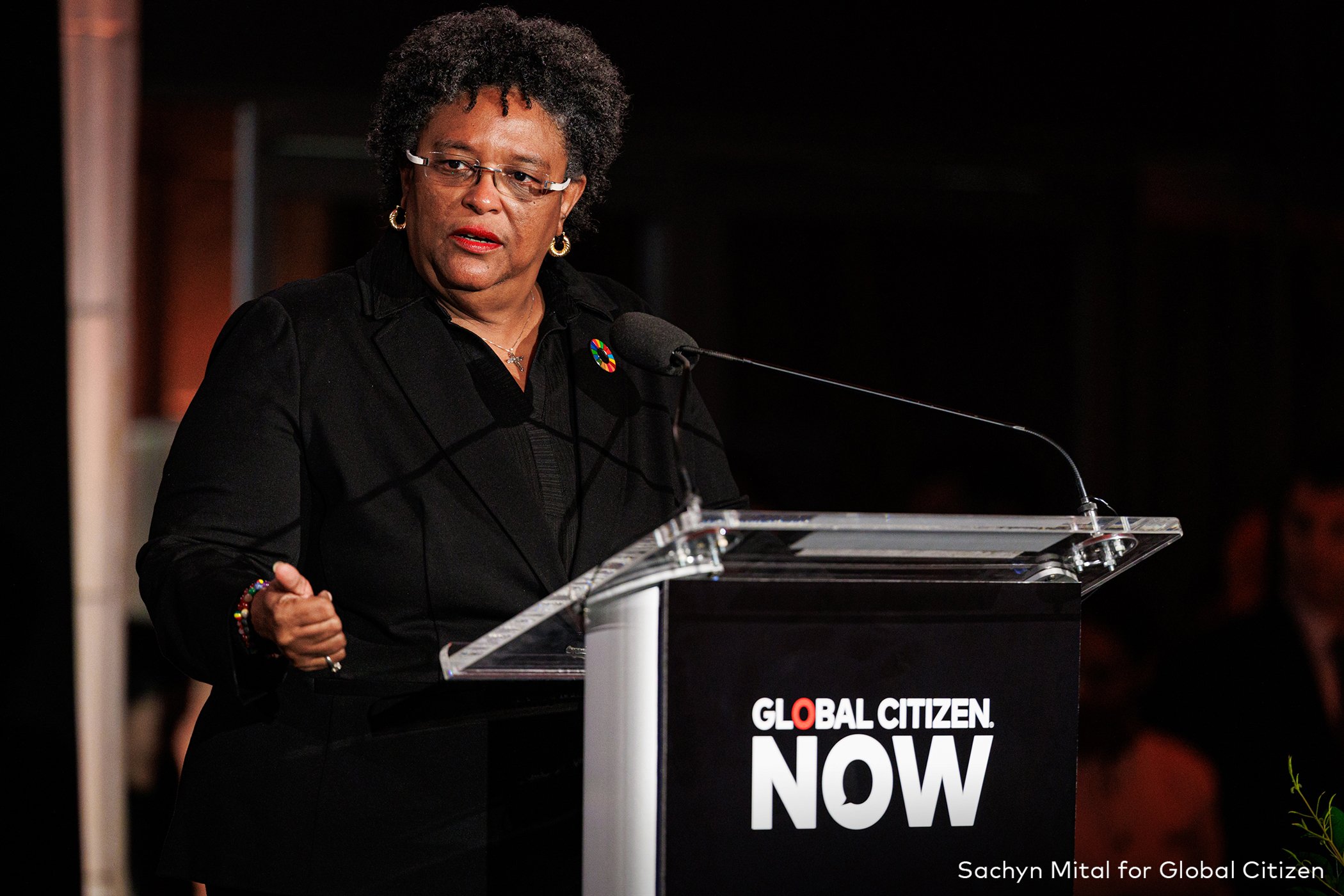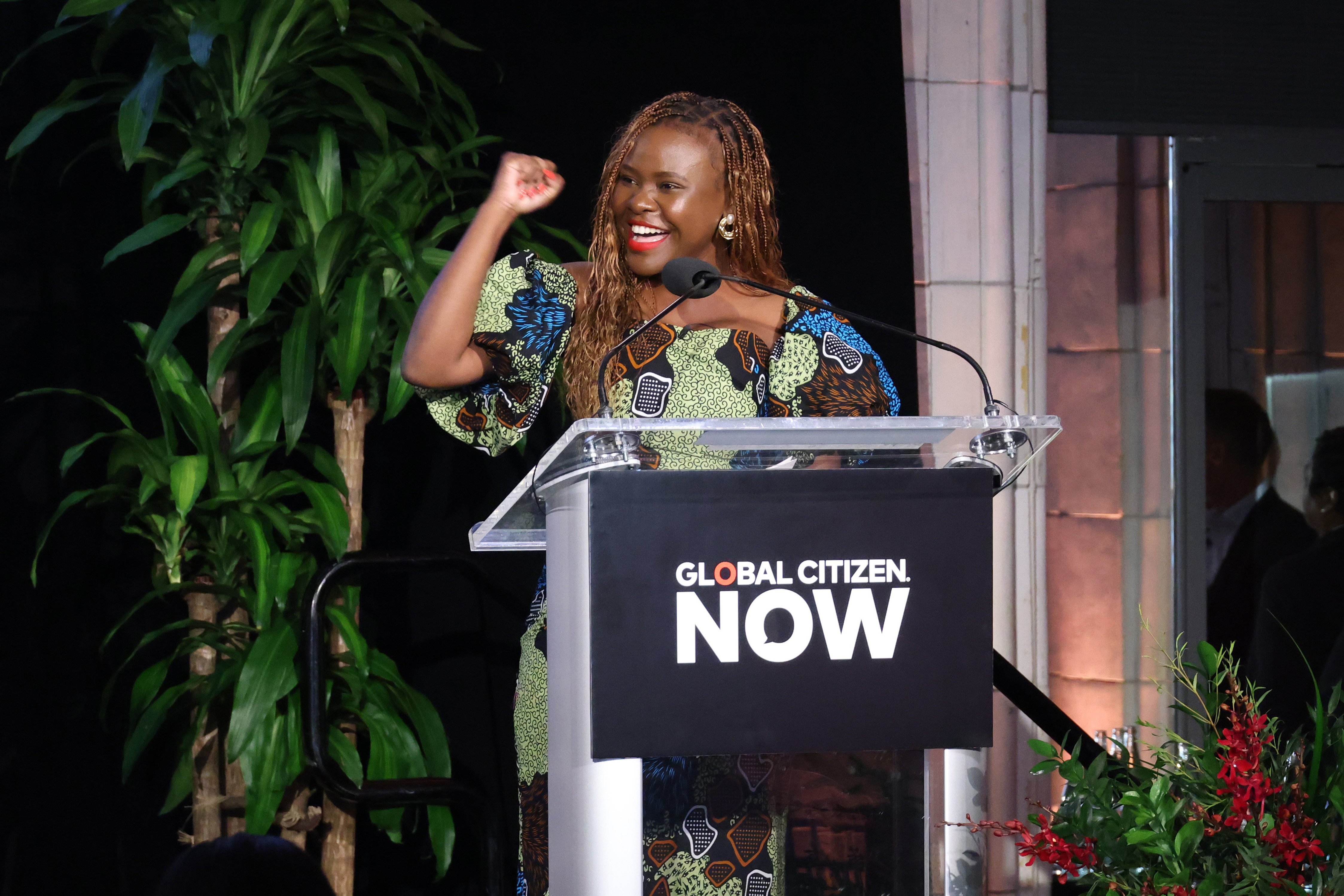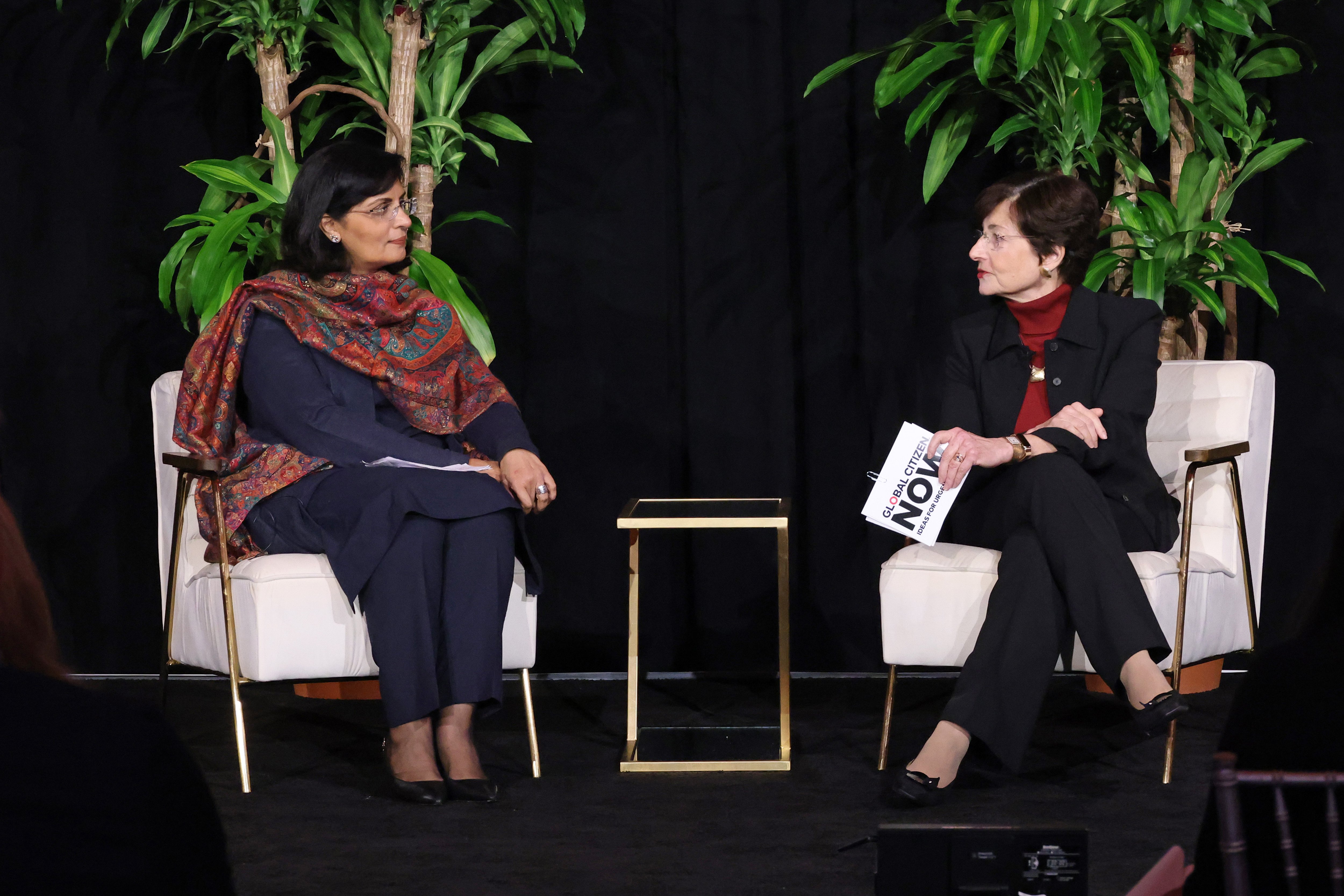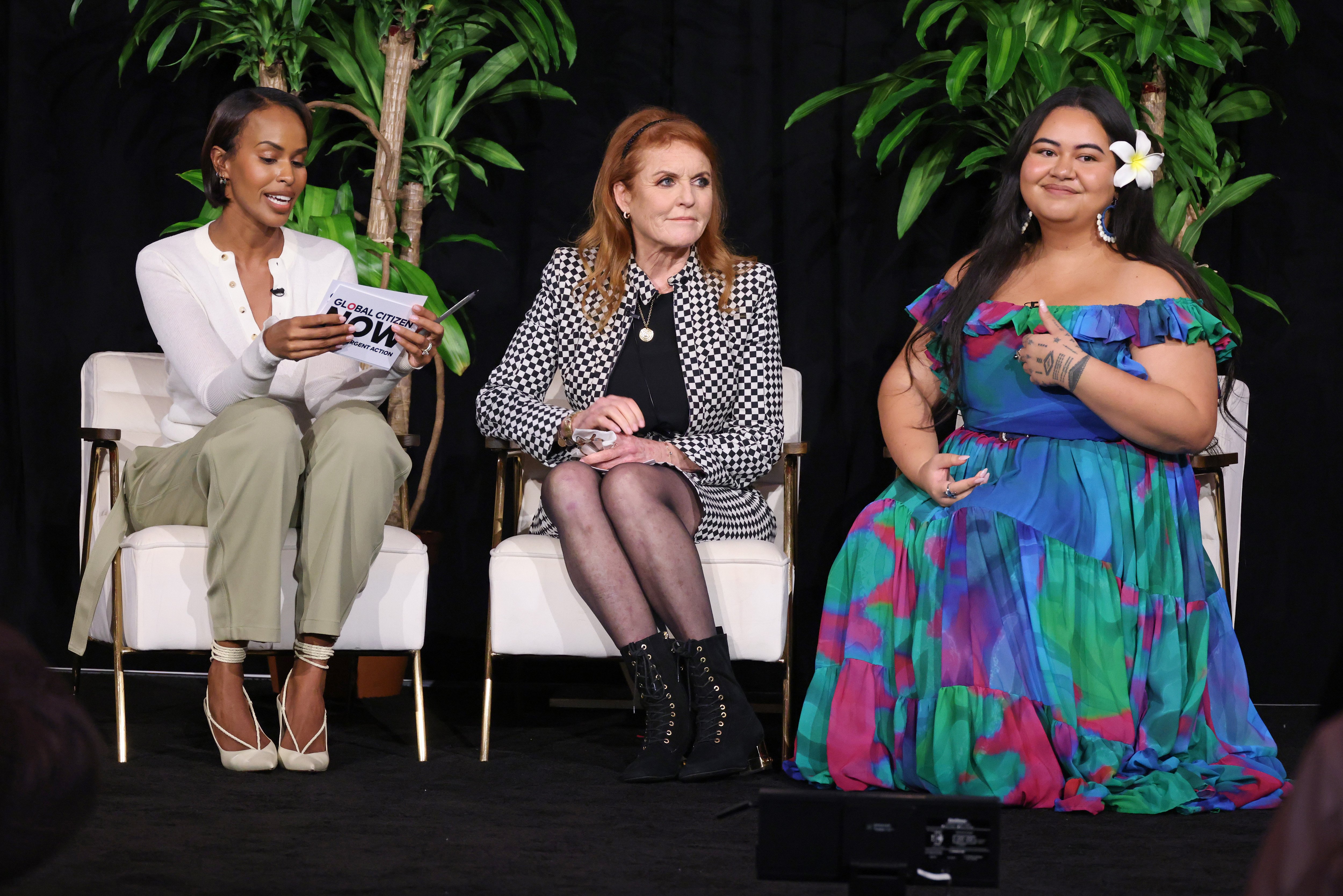The second annual Global Citizen NOW: Health and Climate Financing Sessions brought together a dynamic coalition of global leaders, passionate activists, health professionals, and visionary business leaders to tackle the urgent and intertwining challenges of climate change and health financing. Held in the middle of the United Nations General Assembly and Climate Week on Sept. 25 in New York City, the summit spotlighted critical discussions around safeguarding human health and building climate resilience, particularly in vulnerable nations.
It's no coincidence that the countries most at risk from climate change are also the most susceptible to infectious diseases. With climate change projected to cause an alarming 250,000 additional deaths each year from 2030 to 2050 due to malnutrition, malaria, diarrheal diseases, and heat stress, action is imperative.
The event served as a critical platform for addressing these intertwined crises, offering solutions and igniting ideas about cross-sector collaborations between public and private actors. From keynote addresses by heads of state to high-level discussions and inspiring panelists, the summit emphasized that the time for action is now.
Read on for a rundown of what happened and the key moments that will stay with us.
 Prime Minister of Barbados Mia Mottley made the opening keynote address highlighting the climate crisis’s urgent impact on global health.
Prime Minister of Barbados Mia Mottley made the opening keynote address highlighting the climate crisis’s urgent impact on global health.
Climate and Health: A Global Crisis
Mia Mottley, Prime Minister of Barbados, opened the summit with a compelling keynote address highlighting the urgent impact of climate change on global health. She emphasized that climate change poses a unique challenge to small island nations like hers, making climate resilience essential rather than merely a topic for discussion. Her call for global cooperation resonated strongly, urging action to mitigate the devastating effects of climate change on vulnerable populations.
In a subsequent conversation with Global Citizen CEO Hugh Evans, President Lazarus McCarthy Chakwera of Malawi echoed Mottley’s sentiments, noting that climate-related disasters threaten to undo years of development progress in countries already facing poverty. He emphasized the need for immediate global support for nations grappling with the realities of the climate crisis.
Climate Finance and Advocacy: Bridging the Gaps
His Excellency Ban Ki-moon, former Secretary-General of the United Nations (UN), delivered one of the event’s most memorable moments and made headlines when he endorsed the Fossil Fuel Non-Proliferation Treaty, a groundbreaking policy framework to facilitate the end of the fossil fuel era and usher in a just transition to clean, renewable energy. He urged other world leaders to do the same, saying, “Let’s not stop here: much more can and must be done and I know that I can count on all of you!” As the first former UN Secretary-General to endorse the Treaty, his remarks were met with enthusiastic applause, energizing the room as momentum continues to build behind the plan. The next day, Micronesia became the 14th nation-state to sign on to the Treaty, joining a growing coalition of Pacific island nations to throw their support behind the plan.
While this is a significant step forward, he emphasized that other measures, such as widening the use of debt-pause clauses (a mechanism introduced by the World Bank to allow countries to defer their debt payments after natural disasters), must be explored as well.
 Lydia Charles, founder and Executive Director of Her Initiative, lights up the stage during a panel on women’s economic empowerment.
Lydia Charles, founder and Executive Director of Her Initiative, lights up the stage during a panel on women’s economic empowerment.
Women’s economic empowerment took center stage in a compelling session steered by Pemmy Majodina, South Africa’s Minister of Water and Sanitation, Dr. Kemi DaSilva-Ibru, founder of Women at Risk International Foundation (WARIF), Lydia Charles, founder and Executive Director of Her Initiative, and Mavis Owusu-Gyamfi, President and CEO of the African Center for Economic Transformation. The discussion highlighted the vital role women play in driving the global economy. Majodina stressed the importance of providing financial support to women, especially in Africa, where they contribute significantly to economic productivity but often face barriers to accessing the necessary resources. "Show women the money!" Charles exclaimed, emphasizing that empowering women economically is essential to achieving global prosperity — and as a result, resilience against climate change.
Indigenous Leadership and Health Resilience
Indigenous voices also took the spotlight at the summit, with Dr. Victor A. Lopez-Carmen underscoring their vital role in environmental stewardship. He pointed out that Indigenous peoples are often the most effective guardians of biodiversity, yet their perspectives are frequently overlooked in global climate discussions. His remarks called for greater support and recognition of Indigenous leadership in global efforts to protect both human health and the environment.
 Dr. Sania Nishtar, CEO of Gavi, the Vaccine Alliance, shared her organization’s mission to improve vaccine accessibility in conversation with Dr. Linda Fried of Columbia’s Mailman School of Public Health.
Dr. Sania Nishtar, CEO of Gavi, the Vaccine Alliance, shared her organization’s mission to improve vaccine accessibility in conversation with Dr. Linda Fried of Columbia’s Mailman School of Public Health.
In addition to highlighting Indigenous leadership, Dr. Sania Nishtar, CEO of Gavi, the Vaccine Alliance, shared her organization’s mission to improve vaccine accessibility, particularly for girls, women, and vulnerable populations in regions most affected by climate change. She noted that as global temperatures rise, so does the risk of infectious diseases, making vaccine access an urgent priority. Gavi’s efforts aim to bolster health resilience in the face of climate-induced health threats like malaria and dengue.
Peter Sands, Executive Director of the Global Fund, echoed these statements, warning that if the global community fails to act now, the health gains of the past fifty years could be lost. “It is a health and equity crisis,” Sands said, noting that the poorest and most vulnerable populations are the ones most affected by climate change — despite having contributed the least to it. Sands revealed that, “Over 70% of the Global Fund’s funding goes to the 50 most climate-vulnerable countries,” the organization plans to invest $4 billion in malaria prevention and $6 billion in strengthening health systems over the next three years.
Financial Solutions for Climate and Health Crises
Sands also highlighted that only 5% of climate adaptation funds are currently directed toward health-related projects, with just 10% of these funds reaching communities on the ground. This financing shortfall underscores the urgent need for smarter, more targeted investments to protect human health from the growing threats posed by climate change.
Several sessions explored innovative financial solutions in depth to address these gaps. For example, the Global Solidarity Levies Task Force — an initiative to tax wealthy individuals and high-polluting industries, such as oil and gas, their fair share — was debated by leaders like Prime Minister Gaston Browne of Antigua and Barbuda and Laurence Tubiana, CEO of the European Climate Foundation. This proposal aims to create a predictable source of financing for climate action by holding polluters accountable, potentially transforming funding for global development and environmental protection efforts.
 UN Goodwill Ambassador Sabrina Dhowre Elba, Duchess of York Sarah Ferguson, and climate activist Brianna Fruean discuss how those across the Commonwealth can unite to tackle the climate crisis.
UN Goodwill Ambassador Sabrina Dhowre Elba, Duchess of York Sarah Ferguson, and climate activist Brianna Fruean discuss how those across the Commonwealth can unite to tackle the climate crisis.
Climate Solidarity in the Commonwealth
The panel focused on how the Commonwealth can unite to tackle the climate crisis together. Moderated by Sabrina Elba, CEO and Founder of S’ABLE Labs and Chair of the Global Citizen Europe Board, the discussion featured prominent voices like Sarah Ferguson, Duchess of York, and Brianna Fruean, a Pacific Climate Warrior and Global Citizen Prize Winner.
When asked about the role of youth from climate-vulnerable nations in driving meaningful action, the Duchess of York acknowledged, “The best message that can be given to young people now is firstly, we're very sorry that we have left the planet for you in this state. But the good news is we now have the opportunity to support youth leadership. The way to do that is to lift you up, and give you the opportunity on a platform to speak and truly listen to you.”
Fruean expanded on the challenges faced by regions like the Pacific Islands, noting the importance of narrative in shaping public perception. “People don’t read articles these days; they just read headlines. And when you tell people our islands have run out of time, people give up on us. We are more than just small islands; we are warriors, climate scientists, and advocates for a Fossil Fuel Non-Proliferation Treaty. Of the 13 states that have endorsed the treaty, 10 of them are Pacific Islands. That’s how we can see the Pacific is not lost; we still have hope and know there’s still time left on the clock. The Fossil Fuel Non-Proliferation Treaty is one of our lifelines while we still have time.”
The panel highlighted the need for inclusive dialogue and collaboration across the Commonwealth to empower youth and create effective climate action strategies.
A Call to Action: Global Solidarity for a Sustainable Future
As the sessions concluded, it became evident that global cooperation and innovation from both public and private sectors are crucial for addressing the intertwined climate and health crises. The summit emerged as a rallying call for collective action, emphasizing the empowerment of women and Indigenous communities and advocating for bold climate policies, including the Fossil Fuel Non-Proliferation Treaty.
By uniting diverse voices from around the world, the event underscored the interconnectedness of global challenges, highlighting the importance of sustained momentum in the years to come to safeguard our planet and ensure the health of future generations.